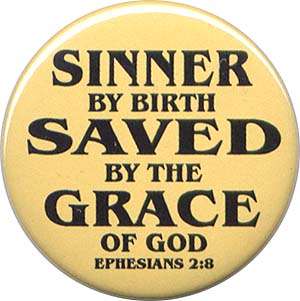Having placed
before them the refutation of both false doctrine and those who teach it, Paul,
through exhortation, brings the Galatians to a moment of choice – Christ, or
the Law?
True freedom is
only found in the person and finished work of Jesus Christ (Vs 1) – every other
means or device is folly. If they decide to keep the requirements of demands
that God has entirely nullified through His Son, then they are, in effect,
stating that this wonderful gift of God Himself, rescuing and reconciling us,
is not good enough, and they will obligate themselves to something they cannot
achieve (Vs 2&3). The dreadful result of such a pursuit is a divorce from
Christ (Vs 4) – a complete loss of their true justification, and their standing
in God’s grace.
Seeking to dress
ourselves in our own merit or worth blinds us to how what counts is truly
achieved. It is not by adorning the chains of our depravity with works we think
are of merit that we find peace and righteousness – such deeds have no more
value than remaining without them, just as our attempts to keep the Law amount
to as much value, in regards peace and righteousness, as returning to the
world. No, what counts is a faith that changes us because it allows us to see
the Love of God poured out to us through the precious giving and breaking of
His beloved Son (Vs 6) – that is what it truly means to be obedient; to love
this precious mercy of God to us. The Galatians had known this, but the
pernicious entanglement of false teaching had ensnared them in the lie that
they could not be truly free without seeking to add something by their own
efforts to the astounding work of Grace (Vs 7). Such poisoned notions mar and
pollute the pure liberty that is ours, but Paul teaches us this must not be (Vs
8) – they must be firmly rooted in the freeing work of Christ alone!
The message and the
liberation of Jesus is so singularly clear and mending, that Paul has no doubt
that now he has clarified the matter, these people, who know the goodness of
God’s redemption, will return and the troublesome teachers will be routed (Vs
10). Only then can the truth that seems so shocking and abhorrent to our
rebellious religiousness be returned – the offence of Christ crucified (Vs 11).
Such truth alone defines the folly of our own fallen piety.
The Life of God





